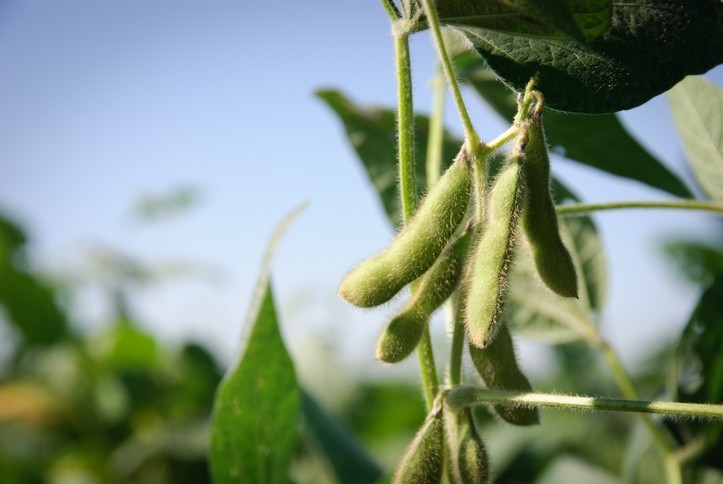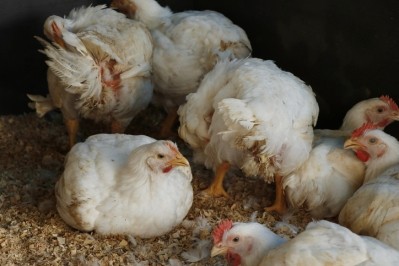Increasing soybean protein content: Benson Hill looks to predictive modelling, species studies and trials

Christi Dixon, spokesperson for the US biotech company, outlined the approach: "We're intensifying our research efforts through advanced predictive modeling, targeted species-specific studies, and comprehensive trials."
In October 2023, Benson Hill unveiled insights from its analysis of non-GMO, Ultra High Protein low oligosaccharide (UHP-LO) soybean varieties, showcasing innovative attributes tailored for poultry diets, swine rations, and pet food, opening up opportunities for the firm in the broadacre animal feed market over the next two to three years.
"Our research last fall unveiled a trio of product attributes inherent in UHP-LO soybeans sought by animal nutritionists, processors, feed formulators, and farmers including elevated yields, higher protein content, and lower anti-nutritional factors," remarked Dixon.
Evaluation of the company's third generation UHP-LO, non-GMO soybean varieties revealed a notable 2% increase in protein levels compared to the previous generation, with a yield gap of merely three to five bushels per acre when juxtaposed with conventional GMO soybeans.
Benson Hill, she continued, has shown that CropOS, its AI-driven prediction and data insights platform, can serve as a catalyst for its predictive breeding endeavors, propelling the company forward in multiple traits such as protein content and yield.
“We are now seeing massive gains in the field that minimize the trade-off between yield and protein in soybeans, surpassing expectations from when we began building on the high-protein soybean genetics we acquired in 2019."
Recent strides in the soybean breeding program are poised to double Benson Hill's seed portfolio by 2025, she added.
"We are expediting our time-to-market with de-risked, outcome-oriented products at an unprecedented pace.”
Furthermore, Benson Hill continues to expand its soy protein expression dataset, leveraging field data from its R&D initiatives, field trials, and commercially cultivated acres. These datasets are digitized to refine the predictive capabilities of CropOS, with plans to disseminate findings from studies and feeding trials as they unfold, explained Dixon.
Incentivizing growers
The company’s proprietary soybeans present an appealing opportunity for Midwest soybean farmers, according to the spokesperson.
“We’re offering premium soybean varieties with higher protein composition, competitive yields, and multiple maturities, creating more choices for soybean growers to participate in market programs and premiums at their discretion.
“We’re evolving our business model as we look at larger volume end markets. While acre contracting opportunities for the 2024 crop year are limited, we are prioritizing our second and third-year growers, and the window is quickly closing.
“We can also offer farmers the opportunity to purchase seeds directly and grow Benson Hill non-GMO soy varieties on their farms independent of our contracting program," she told us.
Dixon also stressed Benson Hill's commitment to advancing beyond mere food security towards nutrition security.
Developing soybean varieties with elevated protein content represents a shared opportunity: the chance to streamline processing steps, reduce natural resource usage, and capitalize on maximizing protein output per acre, she said.
“With our ultra-high protein varieties, we're achieving a 20% increase in protein yield directly from the soil, prior to any processing or concentration."
When considering the holistic process of producing a unit of protein, the resource efficiency inherent in nutrient-dense soybeans presents a compelling sustainability narrative, said Dixon.
Greater protein yield per acre translates to exceptional resource efficiency, resulting in reduced carbon intensity per unit of protein. This, in turn, alleviates pressure on land and minimizes the strain on water resources and associated inputs per unit of protein, she remarked.
"Furthermore, downstream, we're unlocking avenues for carbon and water reductions, benefiting our farmers, customers, and partners throughout the food value chain.”
STEM education
Benson Hill has recently extended its partnership with the Saint Louis Science Center, as it looks to foster agricultural innovation and education. The tie-up supports STEM education goals, demonstrating how plant breeding creates soybeans with traits like increased protein content and why this matters for resource management and nutrition.
Looking to the role that partnerships, in general, play in Benson Hill's approach to tackling agricultural challenges, Dixon said: “We believe collaboration is critical to our success. We are involved with industry groups and associations, fostering new and ongoing alliances to propel innovation in agriculture. There’s an expanding network of pioneers striving to enhance feed and food production. And we recently announced that we’re now partnering with more than a dozen independent third parties to validate the value of our soybean varieties.”












